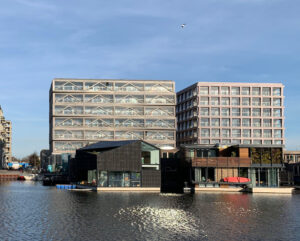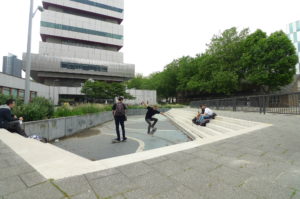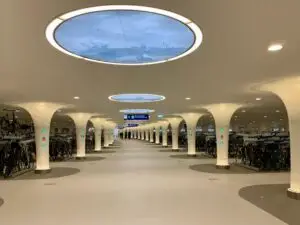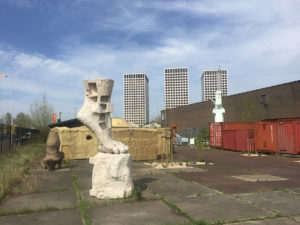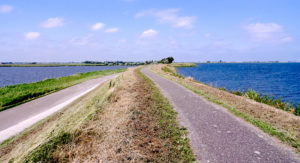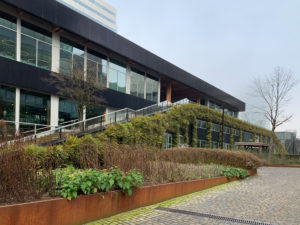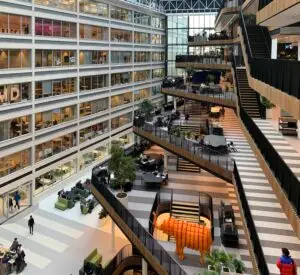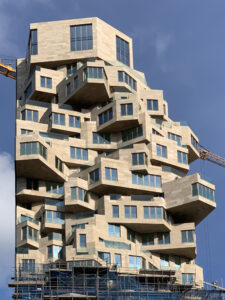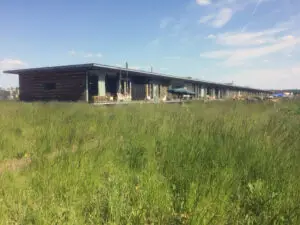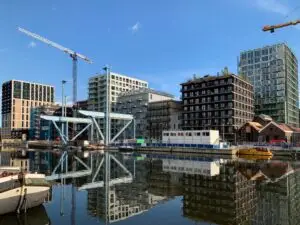Sustainability
The Dutch approach to sustainability in urbanism, architecture, and mobility is widely regarded as one of the most innovative in the world. Sustainability in Holland is not so much focussed on technological solutions, but rather on low-cost, high-impact strategies.
An important aspect of the Dutch approach is a focus on compact and mixed-use urban development. Rather than sprawling, car-dependent suburbs, Dutch cities are characterized by dense, walkable neighborhoods with a mix of residential, commercial, and cultural uses. This not only reduces the need for car travel but also fosters a sense of community and social cohesion. In terms of architecture, the Dutch approach emphasizes energy efficiency and the use of sustainable materials, in order to become more environmentally friendly and reduce its carbon footprint. The Dutch government has set ambitious goals for reducing greenhouse gas emissions, and architecture plays a crucial role in meeting these targets. A characteristic of all Dutch projects is the creative mindset and openness for unusual, innovative solutions. This can be seen in a large variety of project types, from brownfield and harbour conversions to bottom-up initiatives, climate-proof neighbourhoods and playgrounds made from recycled material. Another aspect is the focus on creating buildings that are adaptable and flexible, so that they can be easily modified and repurposed as needs change. Find out more during one of our tours!

